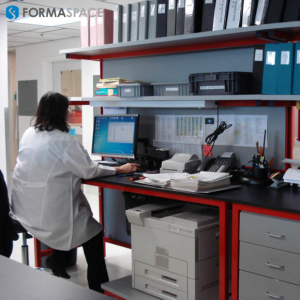
Aging Cells Might Be Responsible for More Young People Getting Cancer
Read more about how the discovery of prematurely aging cells could help uncover the cause of rising cancer diagnoses.
While overall US cancer rates have been dropping, oncologists are concerned that the incidence of ten of the most common cancers is rising again, especially among younger adults.
Worryingly, the demographics of who is getting a cancer diagnosis is also changing – cancer is now affecting younger people in increasing numbers.
Colorectal cancer among people under 50 is now the leading cause of cancer deaths among men and second in women – a significant rise from the 1990s when it was the fourth leading cause of cancer death.
Unfortunately, these rising rates of cancer among younger people are not limited to the USA – many other countries around the world have seen similar increases in these early-onset cancers.
Are there Environmental Causes for the Rise in Cancer Diagnoses Among Younger Adults?
Cancer researchers have been scrambling to identify an explanation for the increase in early-onset cancers among younger adults.
Given that colorectal cancer rates among young adults have nearly doubled since 1995, researchers are asking if some kind of environmental exposure has increased during this time.
There are many suspects but few concrete answers.
For example, there are concerns over increased air pollution, newer pesticide formulations, the release of hormonal chemicals into the waterways, and PFAS “forever chemicals” found in water supplies.
Given that people are spending more time indoors these days, indoor air pollution is also a greater concern, with household cleaners and flame-retardant chemicals used in clothing, bedding, and furniture coming under increased scrutiny.
However, tying cancer to environmental exposure has proven to be a difficult endeavor because many researchers have come to believe a cancer diagnosis often comes down to multiple factors working in combination, such as exposure to carcinogens and an unlucky inherited gene expression.
Lifestyle Changes such as Diets High in Processed Foods, Increased Alcohol Consumption, and Reduced Physical Activity Could Contribute to Rising Cancer Rates
What about lifestyle changes since the 1990s?
Unfortunately, many more younger adults suffer from obesity compared to their parent’s generation, and obesity in your twenties and thirties is associated with a doubling of the risk of early-onset colorectal cancer.
Other factors that could be contributing to this obesity (and cancer risk) are changing diets, especially those that are high in processed food (which can alter the gut biome), soft drinks that are high in sugar or artificial sweeteners, as well as a higher incidence of binge drinking, a rising problem among adults under thirty.
Many younger people also have a more sedentary lifestyle compared to older generations, and research points to a correlation between lower levels of physical activity and early-onset colorectal cancer diagnoses.
Are the Cells of Young People Aging Prematurely? Could this be a Factor in Rising Cancer Rates?
A new observation that is gaining attention among cancer researchers is the observation that, as a group, cells in younger people are aging prematurely.
Given that cancer has been described as an ‘aging’ disease, this is a worrisome development.
Read more...
Julia Solodovnikova
Formaspace
+1 800-251-1505
email us here
Visit us on social media:
Facebook
X
LinkedIn
Distribution channels: Chemical Industry, Culture, Society & Lifestyle, Education, Healthcare & Pharmaceuticals Industry, Science
Legal Disclaimer:
EIN Presswire provides this news content "as is" without warranty of any kind. We do not accept any responsibility or liability for the accuracy, content, images, videos, licenses, completeness, legality, or reliability of the information contained in this article. If you have any complaints or copyright issues related to this article, kindly contact the author above.
Submit your press release


